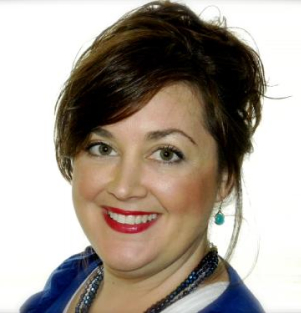MitoAction hosts 4th Mitochondrial Disease Clinical Conference
Written by |

 As part of its ongoing effort to improve mitochondrial disease patient care, MitoAction — a nonprofit organization dedicated to improving the quality of life for children, adults, and families living with mitochondrial disease through support, education, outreach, advocacy, and clinical research initiatives — in collaboration with the organization’s Medical Advisory Committee and the University of Virginia, will host the 2015 Mitochondrial Disease Clinical Conference to be held March 21, at the Ritz-Carlton, Buckhead, in Atlanta, Georgia.
As part of its ongoing effort to improve mitochondrial disease patient care, MitoAction — a nonprofit organization dedicated to improving the quality of life for children, adults, and families living with mitochondrial disease through support, education, outreach, advocacy, and clinical research initiatives — in collaboration with the organization’s Medical Advisory Committee and the University of Virginia, will host the 2015 Mitochondrial Disease Clinical Conference to be held March 21, at the Ritz-Carlton, Buckhead, in Atlanta, Georgia.
Mitochondrial disease is an inherited chronic illness centered in the mitochondria — tiny organelles found in almost every cell in the body that are responsible for creating more than 90 percent of cellular energy and which are necessary in the body to sustain life and support growth. Mitochondria are composed of tiny enzymes packages that transform nutrients into cellular energy. Mitochondrial failure causes cell injury that leads to cell death. When multiple organ cells die there is organ failure. Mitochondrial disease, which can be congenital or develop later in life, causes debilitating physical, developmental, and mental disabilities, its symptoms including poor growth; loss of muscle coordination; muscle weakness and pain; seizures; vision and/or hearing loss; gastrointestinal issues; learning disabilities; and organ failure.
According to MitoAction, about 1 in 2,000 people will develop the disorder, which is progressive with no currently known cure, by the age of 10 years. U.S. disease incidence is estimated to be about 1 in 3000-4000 individuals in the US, and one thousand to 4,000 children per year in the United States are born with a type of mitochondrial disease — similar to cystic fibrosis incidence among caucasian births. In adults, many diseases of aging have been found to be associated with mitochondrial function defects, including, but not limited to, type 2 diabetes, Parkinson’s disease, atherosclerotic heart disease, stroke, Alzheimer’s disease, and cancer. In addition, many pharmaceutical medicines or other toxic substances can potentially injure mitochondria and trigger mitochondrial disease, which can present very differently from individual to individual. In families, there may be one member or many affected over a number of generations. There is no reliable and consistent means of diagnosis.
The conference, “Managing Mitochondrial Disease: Current Trends & Perspectives,” is a concentrated one-day CME course highlighting the most clinically relevant case studies and practical approaches to managing mitochondrial disorder patient led by expert mitochondrial medicine clinicians. The course is designed to increase knowledge of mitochondrial disorder among primary care physicians, pediatricians, nurses, and healthcare providers who are not mitochondrial specialists, but fill active roles in care coordination and and symptoms management for mitochondrial disease patients. Clinical recognition and timely diagnosis by community clinicians is critical to management of mitochondrial disease patients.
Conference program areas of emphasis will include genetics, coordinated care and community health management, gastrointestinal issues, and the dual diagnosis of mitochondrial disease and autism.
The conference is being planned and implemented in accordance with the University of Virginia School of Medicine , which is accredited by the Accreditation Council for Continuing Medical Education for the continuing medical education for physicians and healthcare providers.
 “We cannot stress enough the importance of educating and engaging the community of primary care physicians who care for our children and family members who suffer from mitochondrial disease,” says MitoAction Executive Director Cristy Balcells, RN MSN. “This clinical conference provides a platform for that dialogue, and to help overcome misconceptions about mitochondrial disease. It is our goal to focus on what is most clinically relevant and practical so that healthcare providers are truly better equipped to manage their patients with mitochondrial disorders.”
“We cannot stress enough the importance of educating and engaging the community of primary care physicians who care for our children and family members who suffer from mitochondrial disease,” says MitoAction Executive Director Cristy Balcells, RN MSN. “This clinical conference provides a platform for that dialogue, and to help overcome misconceptions about mitochondrial disease. It is our goal to focus on what is most clinically relevant and practical so that healthcare providers are truly better equipped to manage their patients with mitochondrial disorders.”
Course faculty include: Amel Karaa MD, of Massachusetts General Hospital; Fran Kendall MD of VMP Genetics; Richard Frye MD PhD, of the Arkansas Children’s Hospital Research Institute; Dmitriy Niyazov MD, of the Oschner Health Center for Children in New Orleans LA; Jose Garza MD, of GI Care for Kids, Atlanta GA; David Marcus PhD, a pediatric neuropsychologist at Children’s Healthcare of Atlanta, Georgia; William Wilson MD, of the, University of Virginia Pediatric Genetics department; and Ms. Balcells.
To register or for more information, visit:
https://www.mitoaction.org/clinicalconference
For more information, about MitoAction and mitochondrial disease visit:
https://www.mitoaction.org/about-us
Sources:
MitoAction
ImageCredits:
MitoAction





